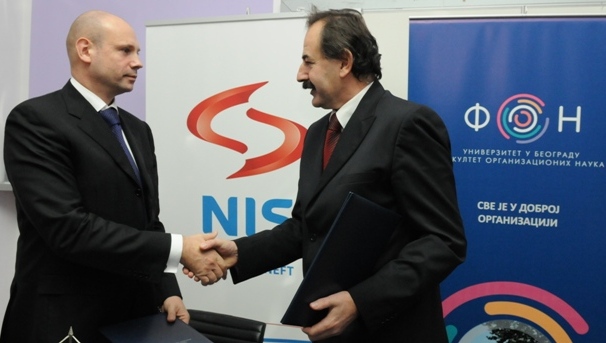Student mobility includes completing a part of the study program (one or more semesters) at a foreign university. Mobility can be organized during undergraduate or post-graduate studies. There are two types of student mobility: attending an exchange program during studies and attending the next level of studies i.e. full-degree mobility.
The advantages of mobility are numerous. In addition to making new friends and learning about different cultures, students learn a foreign language, gain new experience and most importantly, have higher employment perspectives both in their own country and abroad. Attending a foreign academic institution gives students a head start, and successful, and especially international companies see this difference.
Student exchange means spending one or more semesters at a foreign university during the course of a student’s studies at the University of Belgrade. For example, the exchange runs as follows: second year undergraduate students have the opportunity to go on exchange during the third year. During the exchange, students attend courses and exams that are (at best) equivalent to the courses at the home university. This is important because the exams passed at institutions abroad are recognized when the students return to the home institution. Students thus continue with their studies, not where they left off when going on the exchange, but on the following year of the study program, provided that they passed the required exams and that they meet the requirements for enrollment. At the end of the exchange, students receive a certificate from the foreign academic institution, and the duration of the exchange and exams that are passed are entered in the Diploma Supplement, indicating which academic institution was attended and with what grades. Unless the exams are recognized upon returning from the exchange program, the grades on these exams are not included in the grade point average.
Full-degree mobility means that graduates apply and enroll into study programs of master’s and doctoral studies at academic institutions abroad through various scholarship programs. Upon completion, they obtain a diploma of the institution and are not associated with the university where they completed their undergraduate studies.
Mobility programs that students of the Faculty of Organizational Sciences can attend are programs involving the University of Belgrade. An updated list of programs and projects involving the University of Belgrade can be found at:
http://bg.ac.rs/sr/saradnja/mobilnost/
In addition to these programs, students can apply within the following networks and programs:
CEEPUS
CEEPUS stands for Central European Exchange Program for University Studies. This is a program of academic exchange started in 1993 for students, staff and researchers from Middle and Eastern Europe. It is based on an international agreement signed between Austria, Albania, Bulgaria, Montenegro, the Czech Republic, Croatia, Macedonia, Hungary, Poland, Romania, Slovakia, Slovenia and Serbia.
Student scholarships include tuition fees, accommodation, food and allowance. The allowance amount depends on the country the student is travelling to.
Applications are submitted online. Students should contact the CEEPUS coordinator in their country before submitting the application.
Additional information on the program and the contact of the National Coordinator for Serbia at the Ministry of Education and Science can be found on the Ceepus website: www.ceepus.info.
Erasmus+ is a program which supports cooperation and mobility in higher education through the promotion of top quality master and doctoral programs. The goal of the program is to improve the quality of higher education and intercultural understanding through cooperation with partner countries. The program gives the students and staff from all countries of the world an opportunity to attend post-graduate studies at academic institutions of the European Union and vice versa, i.e. enables EU staff and student mobility to partner countries. More on the Erasmus+ program can be found on the website of Erasmus+ Foundation http://erasmusplus.rs/category/obrazovanje/.Erasmus+
Global Undergraduate exchange program for Serbia (Global UGRAD) awards talented undergraduate students full scholarship for spending one academic year in the United States. Global UGRAD is funded by the American people and the U.S. Department of State’s Bureau of Educational and Cultural Affairs. The scholarship covers tuition fees, international travel expenses, accommodation and food, health insurance, a small allowance and provision of books. Students attend courses in their field of studies, including American history and culture, and elective courses. The awarded students will take part in university campus activities, they will be integrated in the local American community through social activities and volunteering and gain practical experience within appropriate internships. The program is administered by World Learning Serbia. More information on the program can be found at http://www.worldlearning.org.rs or http://serbia.usembassy.gov.Global UGRAD


